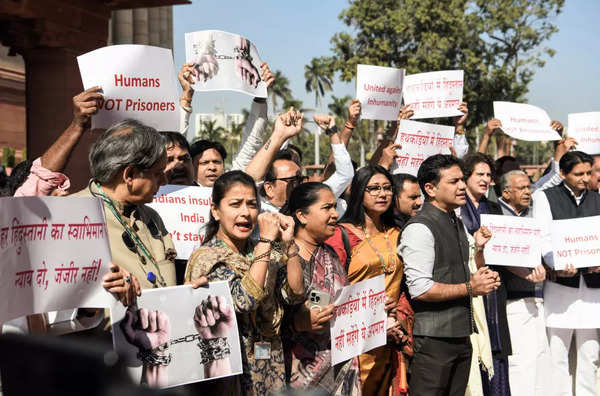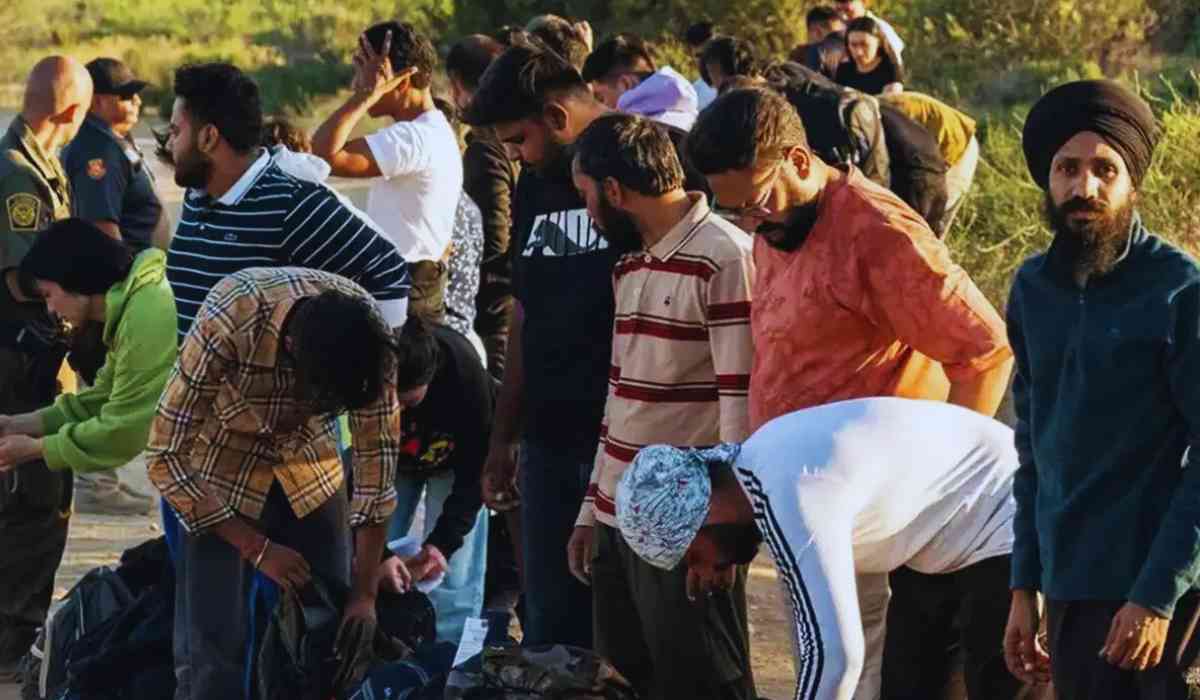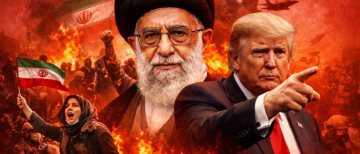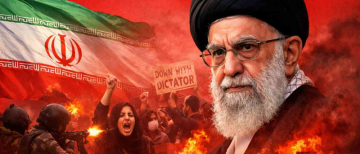Imagine being far away from home, hoping for a better life, but instead, you're put on a plane in handcuffs and sent back. That's what happened to at least 104 Indian citizens who were deported from the United States recently. They arrived in India on a U.S. military plane, and some say they were shackled during the entire 40-hour trip.

What Happened?
The U.S. government says these people were in the country illegally. So, they were sent back to India, the country they came from. But here's the thing: some of these deportees claim they were treated badly. They say they were handcuffed and had their legs chained during the long flight. One man even told the BBC that he was shackled the whole time and only unshackled after landing.
Why Are People Upset?
News of the deportations and the way these people were treated has caused a big uproar in India. Lawmakers in India's Parliament protested, saying it was wrong to treat people like that. Some people even wore handcuffs in protest, holding signs that read, "Humans, not prisoners".One politician, Kuldeep Singh Dhaliwal, has asked India's Prime Minister Narendra Modi to talk to U.S. President Donald Trump about finding a solution to this problem.
Speaking in Rajya Sabha.
https://t.co/t7EnlHYvtn— Dr. S. Jaishankar (@DrSJaishankar) February 6, 2025
What Does the Indian Government Say?
The Indian government says they're talking to the U.S. to make sure that Indian citizens are treated fairly during deportations. India's External Affairs Minister, S. Jaishankar, told Parliament that the U.S. has assured them that women and children were not restrained. He also said that these deportation flights have been going on for years. Since 2009, nearly 16,000 Indian citizens have been deported from the U.S.Jaishankar stated that the focus should be on cracking down on illegal migration. He mentioned that the deportation process isn't new and that the government is engaging with the U.S. to ensure deportees aren't mistreated.
Is India Doing Enough?
Some people in India think the government should be doing more. They wonder why India didn't send its own plane to bring these people back instead of letting them be deported on a U.S. military aircraft.A former Indian diplomat, Kanwal Sibal, said that India needs to talk to the U.S. about these concerns. He said it's important to make sure that the way deportees are treated doesn't damage the relationship between India and the U.S.
Why Are People Leaving India?
One local leader in Punjab, Lakhbir Singh, said that many young people are leaving India because they can't find jobs. He said they're hoping for a better life. He urged the government to fix the problems that are causing people to leave in the first place.

What's Next?
It's not clear what will happen next, but one thing is certain: many people in India are watching closely. They want to make sure that their fellow citizens are treated with respect and fairness, no matter where they are. As the Indian government continues talks with the U.S., the hope is that they can find a way to ensure that deportations are carried out in a humane and dignified manner.

How has the international community responded to the deportation incident?
The search results primarily focus on a specific deportation incident involving Indian citizens from the U.S. and reactions to the global refugee crisis. Therefore, they do not provide a broad view of the international community's response to deportation incidents in general. However, they do offer insights into related issues and reactions:
- Condemnation of mistreatment: The Indian Parliament reacted strongly to reports of mistreatment of deportees, with protests and calls for fair treatment.
- Diplomatic engagement: The Indian government engaged with the U.S. government to ensure deportees are treated with respect.
- Concerns over refugee treatment: Discussions at the UN highlight concerns over the treatment of refugees and the need for voluntary, safe return to their home countries.
- Focus on the root causes: Some voices emphasize addressing the reasons people leave their home countries, such as lack of job opportunities.
- International law and human rights: The broader context involves international laws and conventions aimed at protecting the basic human rights and treatment of refugees, asylum seekers, and migrants.
- Impact on families and communities: Deportation can have detrimental effects on individuals, families, and communities.
- Debate on mass deportations: Calls for mass deportations have occurred, raising concerns about the costs and consequences.
- Need for safe pathways: Advocacy exists for safe ways for refugees to start new lives, such as family reunification.
With inputs from agencies
Image Source: Multiple agencies
© Copyright 2024. All Rights Reserved Powered by Vygr Media.
























